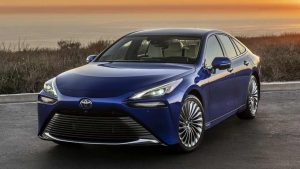GM faces potential $6.5 billion in penalties under new Fuel Economy Standards, says American Automotive Policy Council

Biden Administration’s Proposed CAFE Standards May Impact American Automakers Heavily
The Biden administration’s proposed new fuel economy standards have raised concerns, particularly for General Motors (GM), as it could face significant penalties. According to the American Automotive Policy Council, GM is expected to incur penalties of approximately $6.5 billion by 2033 due to the proposed standards.
While other major automakers are also anticipated to face penalties, including Stellantis with an estimated $3 billion and Ford with around $1 billion in penalties over the same period, GM is predicted to bear the brunt of the financial impact.
The American Automotive Policy Council has expressed alarm over what it considers “alarming” penalties associated with the new Corporate Average Fuel Economy (CAFE) standards. The organization represents the “Big Three” U.S. automakers and asserts that these standards disproportionately affect American automakers compared to foreign companies selling vehicles in North America.
The highest penalties projected for a foreign automaker are slightly over $1 billion, which Volkswagen is expected to pay by 2033 if the new CAFE standards are implemented. Other overseas vehicle manufacturers are likely to pay less. Compliance costs per vehicle are estimated to be $546 for foreign companies and significantly higher at $2,151 for GM, Ford, and Stellantis under the new rules.
The new standards will notably reduce the Petroleum Equivalency Factor for electric vehicles (EVs), resulting in each EV model contributing less to a company’s overall average fleet fuel economy calculation. Environmental organizations like the Sierra Club advocated for this change in 2021, arguing that excessively high imputed fuel economy values for EVs would mathematically guarantee compliance with little effort.
The American Automotive Policy Council contends that the new standards will impose the largest penalties on American companies like GM and will, ironically, reward automakers resisting a complete transition to electric vehicles the most. They describe the new fuel economy standards as “unrealistic” and argue that the increased per-vehicle costs could lead consumers to stick with older, less fuel-efficient cars, defeating the regulations’ purpose.
The National Highway Traffic Safety Administration (NHTSA) has not yet responded to these concerns raised by the “Big Three” automakers. However, the NHTSA has previously suggested that producing more electric vehicles could be a viable solution for avoiding penalties under the proposed CAFE standards.





